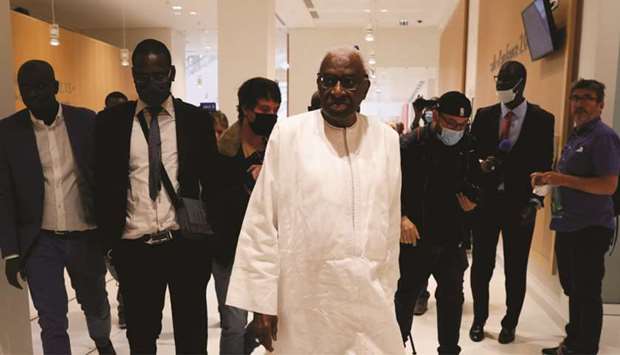The former head of global track and field, Lamine Diack, told his corruption trial yesterday he had agreed to delay and stagger investigations into suspected Russian doping cases for the sake of the sport’s “financial health”.
Diack, who in 16 years at the head of the International Association of Athletics Federations (IAAF), was one of the most powerful leaders in Olympic sport, told a court in Paris he had taken the decision to delay bans after 23 Russian athletes failed tests.
“It was mainly for the financial health of the IAAF,” Diack said.
“The financial health of the IAAF had to be safeguarded and I was prepared to make that compromise.”
Diack, an 87-year-old Senegalese, has admitted that bans were delayed in order to allow the Russian athletes concerned to compete in the 2012 London Olympics and the World Athletics Championships in Moscow the following year.
The aim was to prevent the cases derailing talks with prospective Russian sponsors including state-owned bank VTB and the RTR broadcaster.
Prosecutors say Diack, who was IAAF president from 1999 to 2015, directly or indirectly demanded 3.45 million euros ($3.9 million) from Russian athletes in order to have their names cleared.
The delay in imposing bans, under an operation described as “full protection”, allowed some of the Russians to win medals at the London Olympics.
In court yesterday, Diack refused to be drawn on allegations that he obtained $1.5 million of Russian funds to help back Macky Sall’s campaign for the 2012 Senegal presidential election – which he won – in exchange for covering up or delaying offences by the Russian athletes.
Diack is being tried for corruption, money laundering and breach of trust.

Former head of International Association of Athletics Federations Lamine Diack (centre) leaves the courthouse in Paris on Wednesday. (AFP)
